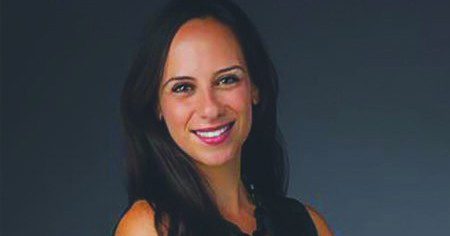Ask Daliah: Here's help on tracking your time

Daliah Saper
Dear Daliah: Any tips for tracking time better?
Dear Readers: We have all faced the black-hole time warp. You worked 10 hours, but your billable hours only record 4.5. Where did all the time go? You were so busy that you had a granola bar for lunch at 4 p.m. just to soak up all the coffee from the morning client marathon.
Keeping track of all of your time often fails because you’re distracted by the hundred different things coming at you, or because you can’t re-create your day at the end when you finally have time to breathe.
Here are the top 3 ways to capture your time effectively.
1. Automatically. Stay ahead of the game and use practice management software that integrates your billing and that has customizable workflows all in one. Not being able to consistently reconstruct time can bankrupt a practice.
I asked my friend Alvaro Arauz at 3.a Law Management, a legal practice consulting firm, for some technology recommendations. He said cloud-based software you can access from anywhere with an internet connection like Clio, MyCase or Rocket Matter are used by many firms. These platforms can automate standard billable tasks like basic discovery, emails, text messages to clients, court hearing confirmations or cover letters.
The 0.2 and 0.1 hours can add up in a day, but can be easily lost. Predefined tasks convert into time slips with a click of a mouse without having to remember if everything was billed in the scope of the assignment. And keep in mind, the time slips can always be adjusted in the prebill phase.
2. Reactively. If work and life keep you busy, use mobile apps to make sure nothing falls through the cracks.
Before technology, lawyers had their hands tied behind their backs. Dialing into a server or desktop on the weekends to enter time made it an insurmountable task. In a week slammed with juggling phone calls from clients, court appearances, interruptive status requests from partners, researching case law, drafting discovery and filing motions, even the most efficient billing workflow was at best a four-step process:
Step 1. At the end of the day, or worse at the end of the week, try to recall what happened.
Step 2. Write the time down on a Post-It/notepad/back of your hand.
Step 3. Manually enter data into a billing system.
Step 4. Approve the slips for accuracy and consistency.
Today, Alvaro recommends using apps like Zapier, Dragon NaturallySpeaking or even Siri to help convert your reactive life into a proactive billing system.
Zapier integrates with things that keep your thoughts and work in order—Dropbox, Wunderlist, Quickbooks, RingCentral, Excel, Clio, Basecamp …the list goes on. Zapier can automate your lawyer life, track the work you perform and keep it all together in one app that communicates with all the others to make sure nothing gets lost.
You can similarly use Dragon NaturallySpeaking or Siri to dictate your time entries when you don’t have time to write it all down. The technology and accuracy of capturing what you are saying has improved dramatically over the years, as has the convenience of being able to email or send your dictation via text. I often dictate on long road trips or when I’m walking to the courthouse.
Don’t forget the apps that complement your desktop or cloud practice management software. Most of them can dial phone numbers or email directly from the app, which in turn captures the time as billable behind the scenes.
 3. Proactively. Interruptions distract from efficiency and, ultimately, from capturing all of your time. Build blocks of time in your schedule so that you aren’t pulled in five directions at once and only accounting for 2.5 of them.
3. Proactively. Interruptions distract from efficiency and, ultimately, from capturing all of your time. Build blocks of time in your schedule so that you aren’t pulled in five directions at once and only accounting for 2.5 of them.
If “shiny objects” like flashing voicemails, text pings or unread email counts are disruptive, create a calendar for concentration. Try a schedule as follows and adjust as necessary:
Priority emails from 8:00-8:30 a.m.
Priority phone calls, 8:30-9 a.m.
Client work, 9-11 a.m.
Emails and calls, 11-noon
Priority items, 1-2 p.m.
Client work, 2-3:30 p.m.
Email responses, 3:30-4:30 p.m.
Calls on the way home, 4:30-5:30 p.m.
While it won’t eliminate all of the distractions, keeping close to this regiment can help you maximize your productivity and the chances of capturing all the time as you go.
Time is money. So start accounting for all of it!
Daliah Saper, founder of Saper Law Offices, is answering reader questions about building a 21st-century law firm. She can be reached at [email protected].
Daliah Saper opened Saper Law Offices, an intellectual property, digital media, entertainment and business law firm based in Chicago, in 2005. Saper is regularly interviewed on national TV, radio and in several publications, including Fox News, CNN, CNBC, ABC News, 20/20, the New York Times and the Chicago Tribune. She is an adjunct professor of entertainment law at Loyola University Chicago School of Law.
Write a letter to the editor, share a story tip or update, or report an error.


